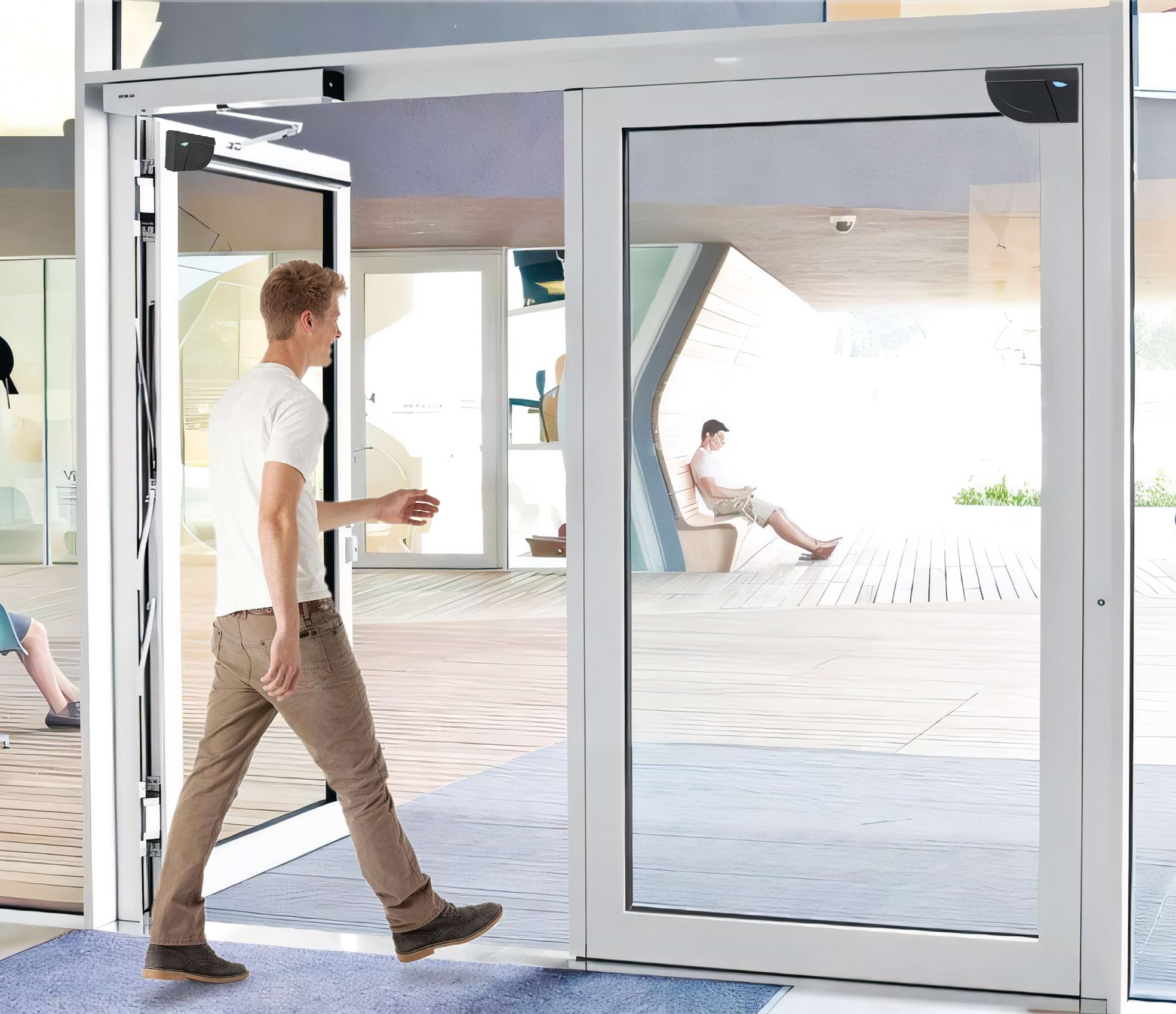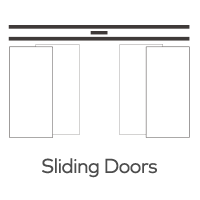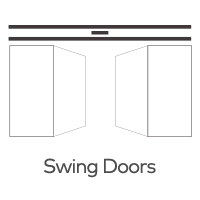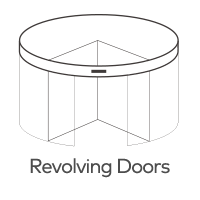¿Cuáles son las ventajas de usar un sensor láser para puertas basculantes?
Los sensores láser se han convertido en una solución ideal para mejorar la funcionalidad, seguridad y fiabilidad de las puertas basculantes en una variedad de entornos. Estos sensores ofrecen un nivel de precisión y adaptabilidad que ayuda a las puertas basculantes a funcionar sin problemas en áreas ocupadas, de alto tráfico y de alta seguridad. Desde una mejor precisión de detección hasta características de seguridad mejoradas, los sensores láser aportan varias ventajas a los sistemas de puertas basculantes. En este artículo, exploraremos los beneficios clave del uso de sensores láser para puertas basculantes y por qué se prefieren sobre otros tipos de sensores.

1. Alta precisión en la detección
Una de las principales ventajas de los sensores láser es su precisión en la detección de objetos y movimientos. Los sensores láser emiten un haz delgado y enfocado que crea una zona de detección altamente definida alrededor de la puerta. Esta capacidad de detección precisa permite al sensor diferenciar entre las personas que tienen la intención de pasar por la puerta y las que simplemente están pasando.
- Reducidos desencadenantes falsos: Con zonas de detección precisas, los sensores láser minimizan los desencadenantes falsos, evitando que la puerta se abra innecesariamente. Esto ayuda a mejorar la eficiencia operativa de la puerta y reduce el consumo de energía. Activación de zonas específicas: Los sensores láser pueden detectar distancias exactas y diferenciar zonas dentro de su rango. Esto significa que la puerta solo se activa cuando una persona entra en un área definida, mejorando el flujo de tráfico en espacios ocupados.
2. Seguridad mejorada para los usuarios
Los sensores láser agregan una valiosa capa de seguridad a las puertas basculantes al asegurarse de que se abran y cierren solo cuando es seguro hacerlo. Al detectar obstáculos o personas dentro del camino basculante de la puerta, los sensores láser ayudan a prevenir accidentes y lesiones, lo que es crucial en áreas ocupadas, públicas o de alto tráfico.
- Detección de obstáculos: Si un objeto o persona está dentro del alcance de la puerta basculante, el sensor láser impide que la puerta se cierre. Esta característica reduce el riesgo de colisiones, especialmente en entornos donde las personas pueden estar pasando con visibilidad o movilidad limitadas. Prevención de colisiones: El sensor detecta la presencia de objetos en el camino de la puerta y puede detener o retrasar el movimiento de la puerta. Esto es particularmente beneficioso en entornos como los hospitales, donde los pacientes pueden moverse lentamente o con asistencia.
3. Adaptabilidad a diferentes entornos
Los sensores láser son altamente versátiles y se pueden adaptar a diversas aplicaciones y entornos. Ya sea que la puerta basculante se instale en una tienda minorista, hospital, edificio de oficinas o centro de transporte, los sensores láser se pueden personalizar para satisfacer las necesidades únicas del espacio.
- Zonas de detección ajustables: Los sensores láser permiten zonas de detección personalizables, por lo que puede ajustar el rango y la sensibilidad en función de la aplicación. Esto es ideal para entornos con diferentes requisitos de flujo de tráfico, como las entradas que necesitan zonas más amplias para acomodar a grupos grandes o zonas más estrechas para controlar el acceso. Los sensores láser son más resistentes a los cambios ambientales, como las fluctuaciones en la iluminación y la temperatura, que algunos otros tipos de sensores. Esto los hace fiables tanto en interiores como en exteriores, garantizando un rendimiento consistente en diversas condiciones climáticas.
4. Eficiencia energética y ahorro de costes
Los sensores láser ayudan a reducir los costes operativos asociados con las puertas basculantes automáticas. Al evitar la activación innecesaria de las puertas y garantizar una apertura y cierre eficientes, contribuyen a una mejor gestión de la energía.
- Operación optimizada de la puerta: Los sensores láser minimizan el uso de energía activando solo cuando sea necesario, lo que reduce el desgaste en el sistema de motor de la puerta. Esto lleva a componentes de puerta de mayor duración y costos de mantenimiento reducidos. Perdida controlada de calefacción y refrigeración: Al evitar que la puerta se abra innecesariamente, los sensores láser ayudan a mantener el clima interior del edificio. Esto es especialmente beneficioso en espacios comerciales, donde el intercambio de aire incontrolado puede llevar a mayores gastos de calefacción y refrigeración.
5. En entornos donde la higiene es una prioridad, como instalaciones de salud, restaurantes o laboratorios, los sensores láser permiten un funcionamiento de puertas totalmente sin contacto. Esto promueve un entorno más limpio al reducir la necesidad de contacto físico con la puerta, ayudando a limitar la propagación de gérmenes y bacterias.- Acceso sin tacto: Con sensores láser, la puerta puede detectar cuando alguien se aproxima, abriéndose automáticamente sin necesidad de tocar un mango o botón. Esto es particularmente útil en hospitales, instalaciones médicas y establecimientos de servicio de alimentos donde el mantenimiento de condiciones sanitarias es esencial.
- Control higiénico en espacios públicos: Los sensores láser proporcionan una solución sin contacto, que mejora la limpieza y hace que los espacios sean más seguros para los usuarios al minimizar los puntos de alto contacto.
6. Confiabilidad en áreas de alto tráfico
Los sensores láser son conocidos por su durabilidad y rendimiento consistente, lo que los hace adecuados para entornos de alto tráfico como centros comerciales, aeropuertos y edificios corporativos. Su fiabilidad garantiza que las puertas basculantes puedan manejar la activación frecuente sin comprometer la seguridad o el rendimiento.
- Rendimiento de larga duración: Diseñados para uso pesado, los sensores láser están construidos para soportar la activación frecuente y continuar funcionando con precisión con el tiempo. Esta fiabilidad los convierte en una opción preferida para áreas que experimentan un flujo constante de personas a lo largo del día.
- Gestión eficiente de la multitud: En espacios ocupados, los sensores láser se pueden programar para detectar diferentes patrones de tráfico, ayudando a gestionar el flujo de personas que entran y salen sin causar retrasos innecesarios.
7. Compatibilidad con sistemas de control de acceso
Los sensores láser se pueden integrar fácilmente con sistemas de control de acceso, mejorando la seguridad para áreas restringidas. Al conectarse con los sistemas de seguridad, los sensores láser aseguran que solo las personas autorizadas tengan acceso, al tiempo que proporcionan un funcionamiento seguro y sin problemas para los usuarios autorizados.
- Acceso controlado en áreas seguras: Los sensores láser pueden trabajar en conjunto con lectores de tarjetas clave, escáneres biométricos u otros métodos de control de acceso para asegurarse de que la puerta solo se abra para personas con autorización. Seguridad mejorada en entornos sensibles: Al ofrecer una activación precisa y selectiva de puertas, los sensores láser ayudan a proteger áreas de alta seguridad, como laboratorios o centros de datos, donde solo debe entrar personal autorizado.







